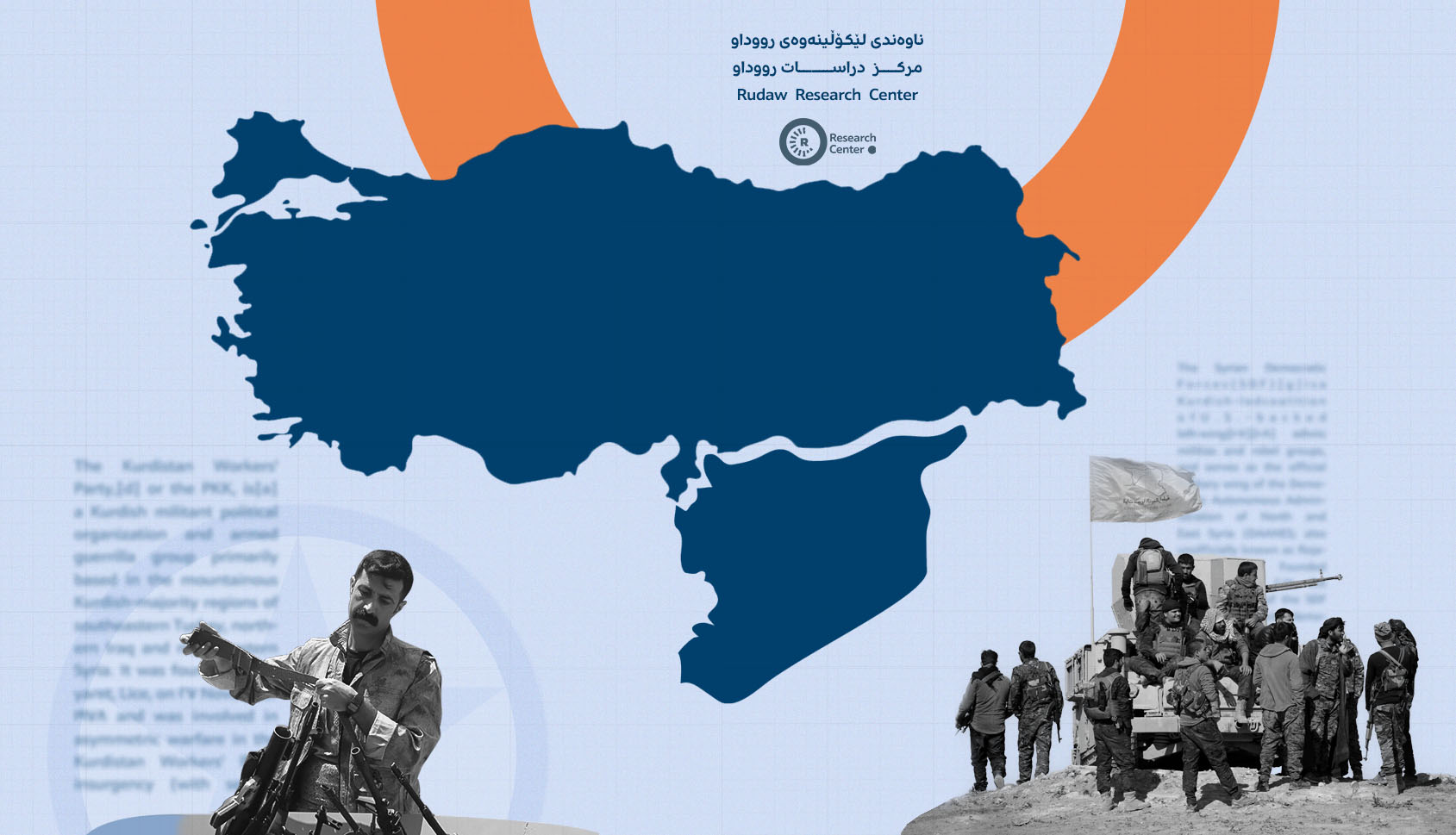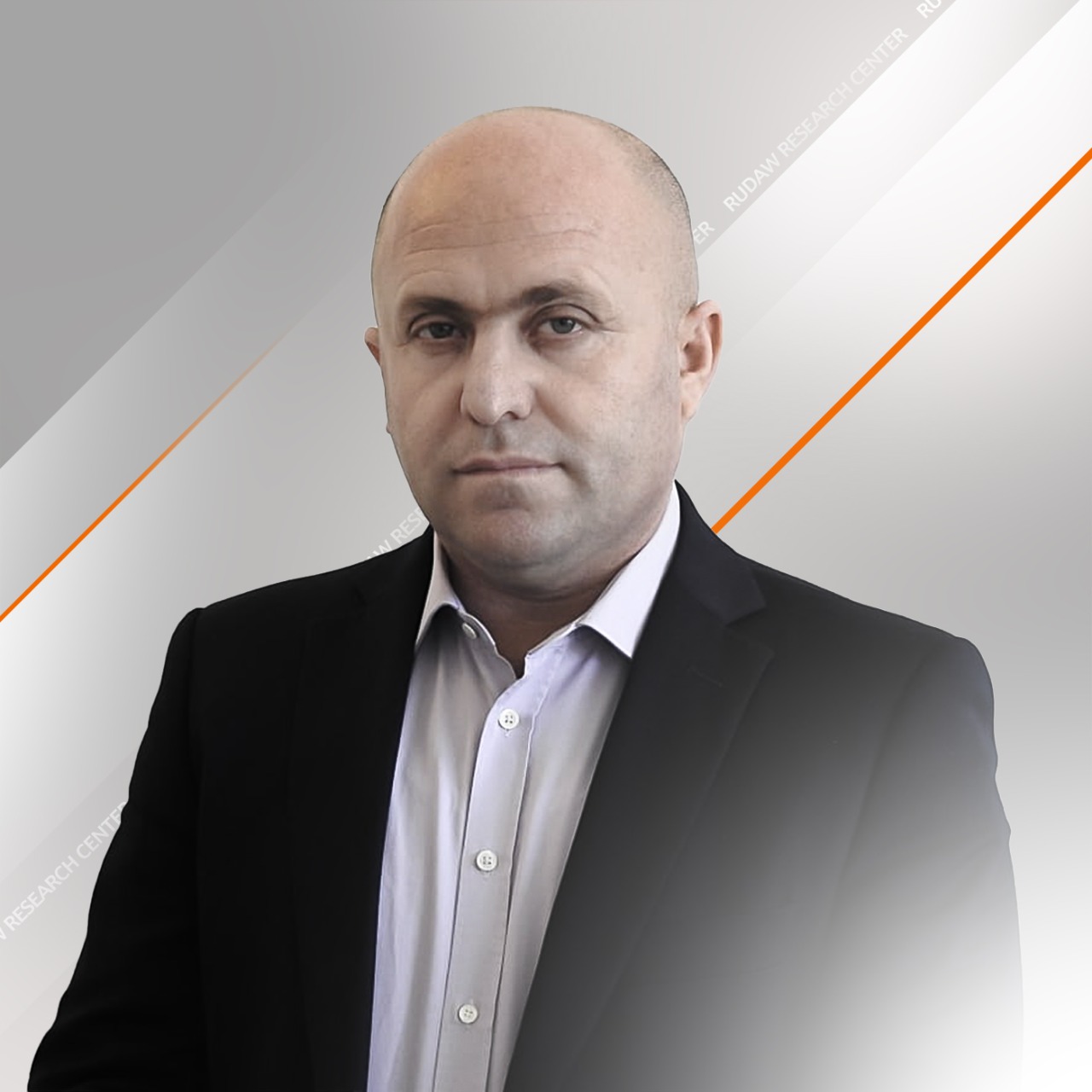From Last Year’s Speech to This Year’s Promise: PKK Disarmament and the SDF Issue in Light of Devlet Bahçeli’s Speeches
23-10-2025
Overview
Exactly one year ago today, on a day much like this one, Devlet Bahçeli, the leader of Türkiye’s Nationalist Movement Party (MHP), delivered a speech in parliament that marked the beginning of a new phase in the ongoing conflict between the PKK and the state, a process that continues to this day.
At the time, Bahçeli’s speeches contained significant clues about the developments that would later unfold. Two days ago, almost exactly one year after that pivotal moment, he once again addressed parliament, offering key insights into the current phase of this evolving process in Türkiye, one that directly affects both the Kurdistan Region and the broader Kurdish issue across the region.
What did he say last year—and what does he say this year?
A comparison of the two speeches delivered by the MHP leader, on October 22 of last year and October 21 of this year, offers valuable insight into the evolving discourse surrounding the dissolution and disarmament of the PKK, as well as its regional implications for the Kurdish issue.
In this year’s speech, Bahçeli firmly denied the existence of any disagreement within the ruling coalition, composed mainly of the Justice and Development Party (AKP) and his own party, the Nationalist Movement Party (MHP). He also directed criticism at the Republican People’s Party (CHP). While he addressed the actions of certain groups attempting to obstruct the PKK disarmament process, the remainder of his remarks largely focused on Cyprus and the Gaza–Palestine issue, reflecting broader regional concerns in Türkiye’s foreign and domestic policy agenda.
In last year’s speech, Devlet Bahçeli spoke of a “national and common mind,” while this year he referred to a “political mind” that safeguards the foundations of the regime and power, and stands behind current events. Notably, he began both speeches with the phrase “my dear friends of the cause,” as if positioning himself beyond mere internal political competition. In truth, given the current balance of power in Türkiye, his speeches can be viewed as representing that very “political mind” which operates behind the scenes of recent developments.
Geography of the heart and geography of politics
Like last year, this year as well, in the sixth sentence of his speech, he greeted the people of Türkiye’s “geography of the heart and culture” and said they are going through a turning point. The phrase “geography of the heart and culture” is a phrase referring to areas where Türkiye seeks to extend its impact, even though now they do not fall within its official political map.
In 2017, following the Kurdistan Region’s independence referendum, Devlet Bahçeli referred to Kirkuk and Mosul as the 82nd and 83rd provinces of Türkiye. This year, he reaffirmed that ambition but stated that, due to pressing priorities, Northern Cyprus should first become Türkiye’s 82nd province. His remark comes in light of the recent elections there, which brought to power a president more inclined toward reunification with Southern Cyprus.
Recep Tayyip Erdoğan, the President of Türkiye, had previously, in a speech following the surrender and burning of weapons by 30 PKK members in Sulaymaniyah, spoken of a Turkish–Kurdish–Arab alliance. He also recalled that the battles of Manzikert, Al-Quds, and Istanbul were fought together and represent victories shared by all. In that speech, he drew a symbolic map extending from Damascus to Mosul, Kirkuk, Sulaymaniyah, Baghdad, and Istanbul, describing them as common cities belonging to Turks, Kurds, and Arabs alike. Turkey officially rejects any policy of political expansion and interprets such discussions as discourses of a shared heritage for regional political and economic cooperation. However, the events in Syria and the fall of Bashar al-Assad, and the initiation of dialogue on the dissolution and disarmament of the PKK have created concern among some Shia politicians in Iraq that perhaps in a fragile state of regional geopolitics, Turkey, due to its needs for oil and security, might transform its "geography of the heart" into an actual political geography. It appears that Türkiye seeks to preserve its current relationship with Baghdad during this election period, as it remains uncertain whether Mohammed Shia’ al-Sudani will continue as prime minister. This sentiment is reflected in Bahçeli’s speech, in which he states that while Mosul and Kirkuk remain Türkiye’s long-term goals, there are other priorities for now.
The island that means Öcalan
Last year, the MHP leader referred to Abdullah Öcalan as a terrorist leader, stating that if he were to call for the dissolution of the PKK, he could be eligible for the “right to hope,” which refers to the legal principle that allows a prisoner’s conditional release to be considered after serving part of their sentence, based on good behavior and other criteria set by law. This year, however, he referred to Öcalan simply as “İmralı”, a notable shift, since throughout the previous year he had repeatedly described him as the founding chairman of the PKK.
This change in terminology may reflect, on one hand, an effort to align more closely with the President of Türkiye, who also uses that designation. Bahçeli understands that, regardless of how influential his political project might be, it is difficult to advance it without the president’s approval. On the other hand, the use of İmralı might serve to soften public reactions, since many in Turkish society do not share Bahçeli’s views on Öcalan.
According to a survey conducted by the Social Research Institute between September 25 and 29 of this year, 87.8% of respondents opposed Öcalan’s release, which Devlet Bahçeli believes he has kept his promise. Among the respondents, 91.5% of those identifying with the AKP, 97.3% of MHP supporters, and 93.5% of CHP members said they were against releasing Öcalan. In fact, this year’s speeches by Devlet Bahçeli more closely reflect public opinion as revealed in the recent survey.
According to the survey, 44% of respondents said that the Kurdish language could be taught in schools as an elective course. In addition, 42.8% stated that the constitution should be amended to include other ethnic groups as well. However, 84.7% said that the term “Turkishness” should not be removed from the constitution. Similarly, 69.3% of participants agreed that Kurdish citizens of Türkiye are also Turks, while 72.6% said that every citizen of the Republic of Türkiye should be considered a Turk.
In his speech this year, Devlet Bahçeli emphasized that the definition of nation does not imply the denial of other identities, cultures, or terms. This view appears to align with public opinion, which remains relatively moderate—especially compared to the more controversial issue of Öcalan’s potential release.
Bahçeli also discussed that the parliamentary commission is preparing the legal and democratic framework for the disarmament process, noting that the commission’s work is nearing completion. From his speech, it appears that some changes may be introduced in November of this year, while the PKK has conditioned full disarmament on concrete steps by both the state and parliament.
Looking ahead, it is possible that future reforms, including recognizing main ethnic groups such as the Kurds in the constitutional definition of citizenship, introducing optional mother-tongue education in schools, and even considering a general amnesty, may come to light.
Calls for the dissolution of the SDF (Syrian Democratic Forces)
In his speech, Bahçeli called for a two-state solution to the Hamas and Republic of Northern Cyprus issues, and discussed the PKK–SDF issue, referring to a potential integration process. He stated that Öcalan has clearly rejected demands for federalism, autonomy, and even cultural autonomy, emphasizing that no one should pursue unprecedented claims of autonomy or seek a share of power. This likely alludes to ongoing negotiations or behind-the-scenes demands from the PKK-DEM Party, which appears more inclined to transform the current process into bilateral talks.
Unlike last year, when he avoided the topic, this year Bahçeli explicitly underscored the necessity of disarming the YPG and SDF. His remarks align with the position of the President of Türkiye, who has consistently stated that not only the PKK but also the SDF must lay down their arms.
Although no written agreement has been signed yet, it appears that Damascus and Ankara have reached an understanding that the SDF will remain organized into three divisions. One division would operate jointly with Damascus and the international coalition in the fight against terrorism across Syria, while the other two would remain stationed in their current areas. Damascus seeks to appoint the commanders of these forces, while the SDF, in return, demands a role within the Ministry of Defense and the General Staff of the Army. Both sides have yet to reach a consensus on the model of administrative decentralization and other matters such as education, but at present, the central issue seems to revolve around the SDF’s chain of command. According to current discussions, both parties have agreed to change the organization’s name as part of the negotiations.
This latest round of SDF–Damascus talks has come about largely due to American pressure. Much like Steve Witkoff, the U.S. Special Envoy to the Middle East, who managed to broker an agreement between Israel and Hamas in Gaza, Tom Barrack now seeks a similar diplomatic success by finding a resolution to the complex Damascus–SDF–Türkiye relationship. In pursuit of this goal, he is knocking on every door. In reality, ongoing negotiations are taking place between Damascus and the SDF regarding integration into the Syrian army and government. However, a more substantial turning point is needed for the Ahmad al-Sharaa–Mazloum Abdi agreement to be implemented as Tom Barrack wishes. This process is intertwined not only with Syria’s internal dynamics but also with the future of the PKK disarmament process and the statements of Devlet Bahçeli.






